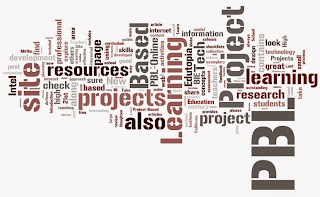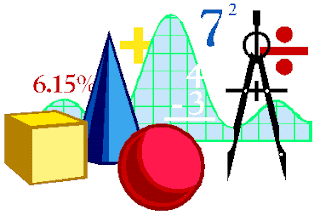Project Based Learning Part 1 and Part 2
The first thing that Anthony Capps said really hit me. "My ideas about project based learning are consistently evolving." That is an extremely loaded comment, and this is the way it should be. The world and the needs of children are always changing, so the methods in which we teach them need to change as well. Then he went on to talk about how most teachers look at projects as ways to make sure that the kids understand what they were teaching them instead of actually using the projects as a method to teach them. He also talked about how he had to tweak projects to make the students learn what the state requires them to learn by doing those projects. Then he went into a few examples of how he has used project based learning. Everything that was talked about was extremely interesting! Hearing him talk about all of the things he has done with his students has made me super excited about project based learning!
About one third of the way into the second part, Dr. Strange asked Anthony how his 3rd graders' works compares to EDM310 students' works. He basically said that the works are the same, but that's comparing 9 year-old children with adults. The main point they wanted to make with these two parts is that it is important that the project based learning is used as a method to teach not to evaluate if they have learned. This will take a lot of time to prepare, and the results are amazing! Kids love it! Parents love it. The kids are actually learning because they are engaged.
In this video, Dr. Strange is asking Anthony Capps about iCurio. The main cool use for iCurio search engine is the fact that it is filtered content for the children. I think that this is a great tool! It also allows teachers and students to store content that they find useful. They can organize and sort different information. iCurio is easy for children to use. It has a great tool for history as well. There is also a feature for children with different types of disabilities. Overall, this search engine sounds amazing! I just wish that I could use it as an effective tool for high school math students.
Discovery Ed is basically a tool that can be used to find images and videos to couple with different material. This helps keep the students involved. The students can also enrich their learning experience by finding different videos on more specific topics. Dr. Strange has said before that there is no way any teacher will know every single little detail about everything they teach. This tool allows students to delve into their projects much more than basic classroom materials would have been able to provide. I think that it is absolutely amazing! This literally gives the students the power to learn as much as they want to learn about what topic they are really interested in!
The Anthony-Strange Tips for Teachers
This video was Dr. Strange and Anthony Capps having a conversation about different things that would be important for a future educator to consider before they take their first step into their classroom. The first thing is to want to continue learning yourself. The second thing is that it is hard, but you can make it fun. Spend your free time learning your teaching style. A teacher's work is never done, but it is extremely rewarding. The third thing is to be flexible and creative. Be ready to adjust what you were planning in case something comes up. Also, if something turns out differently than you imagined, adapt to that and figure out how it got there. The fourth thing is to reflect on how a particular project turned out. Did the students like it? Was it effective? You need to be willing to critique your lesson plans and get feedback from students and parents. If you find out that you need to change your strategies, change them. Do not be afraid to increase the quality of your lessons! At the end of the video, Dr. Strange added a few things or separated them, but I do believe I covered most of them! I definitely learned a lot from this. The more of these videos I watch, the more excited I get about teaching!
All of your students will have experience with technology. It doesn't matter if they're at a low income school or a high income school. Our society is surrounded by technology. Anthony mentioned that you shouldn't teach technology, you should use it. The students enjoy being able to create things on iMovie and other tools. Let your students get excited about what their doing by using technology. They get to share their work! How exciting is that! We have seen how excited children get when we simply reply on their blogs. This can definitely encourage them. There is also a lot of layers of the work that allows the students to learn a lot about the programs. If you want your students to learn how to do something, do it yourself! This can help them learn how to ask valuable questions, and of course it can help you in answering it most of the time. It also helps them problem-solving skills.
Additional Thoughts About Lessons
Your lesson plan has four layers. The first layer is what you plan on doing for the entire year. Make sure you are covering all of the content that is required. The second layer is the unit. Are the units organized in an effective, meaningful way? Does it makes sense, and is it connected in a certain way? The third layer is what you are planning for that week. You need to make sure you organize your week in a way that allows you to get everything done. The fourth layer is what you plan to do on a daily basis. This plan has all of the details of your day. How do you get their attention? What do you use to keep them engaged that day? Use something at the end to see what they learned that day. Each of these four layers are equally important. I actually believe that this video is the most helpful one for me. Since I'm teaching math, I won't be able to utilize technology as in depth as other subjects will be able to. I always knew that I would have to plan my lessons somewhat like this, but I like the way it was explained. I will definitely be using this strategy when making my lesson plan!
I would like to take a moment to thank Dr. Strange and Anthony Capps for so much valuable information for all of us future educators. I would also like to thank you for taking the time out of your day to read my blog post! I hope you enjoyed it!
Jennifer L. Cole






